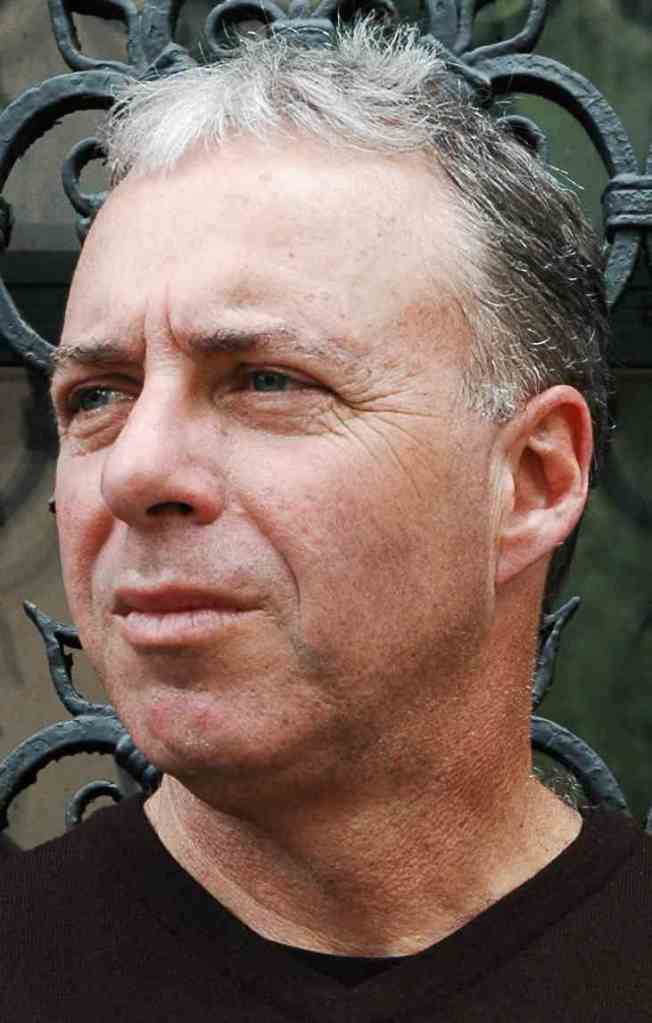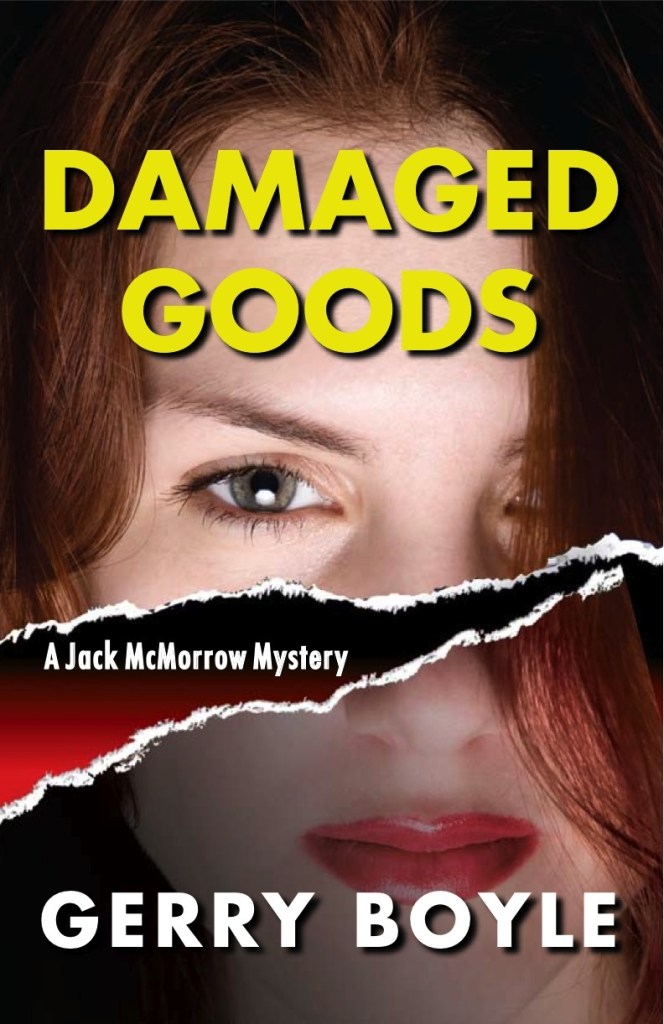If Gerry Boyle had a retail franchise, he’d probably call it Storytellers Inc.
Boyle, a former newspaper reporter and columnist and longtime Maine writer, knows how to use just the right words to tell a tale. A Colby College graduate with a degree in English, he’s been telling stories most of his life.
When he was working in the newspaper business, his stories were succinct and factual. As a novelist, he has the liberty to make things up. But his novels also ring true, because Boyle is well-versed in his subjects and writes with authority.
Boyle just released the latest entry in his Jack McMorrow mystery novel series, “Damaged Goods,” published by Down East.
In this installment, McMorrow, a former reporter with the New York Times, is living a quiet life in rural Maine, and must match brains and brawn with a Satan worshiper while trying to help a small-town hooker find a better way of life.
Boyle also has another character, Brandon Blake, who is the subject of a second mystery novel series that’s based in Portland about a young cop. It’s actually not yet a series — to date, Boyle has written just one Brandon Blake mystery, “Port City Shakedown.” But he’s working on a second.
“Storytelling is always what I have done,” Boyle said during a recent interview in Portland. “The question is, why do you sit at the computer? It isn’t the money, and it isn’t the fame, because all of that is fleeting. You do not do it for that. You do it because you want to tell a story.”
Boyle has been writing novels for 20 years. He started his writing career working for a weekly newspaper in western Maine, and then moved over to the daily routine churning out copy for central Maine’s Morning Sentinel in Waterville. He now works as managing editor of Colby Magazine.
Boyle lives in China, a small community in central Maine. He and his wife have lived there long enough to raise three children and send them off into the world.
Q: What made you want to go to Colby?
A: I wish I had a more academic answer. I played tennis, and my doubles partner in high school was a year older. He went to Colby, and I went up to visit him. I liked Colby, and I really liked Maine. I was in Rhode Island, which was nice — and still is nice. But I really liked Maine, and not just Maine, but that part of Maine. I never expected to stay this long.
Q: You are a busy man with a lot of responsibility. How do you find time to write, and what type of discipline does it take to write a novel?
A: It takes the discipline of making sure you write pretty much every day, and you make it a part of your routine so that you wouldn’t miss it any more than you would miss going to work anywhere else. People say, ‘I can’t write a book,’ or ‘I don’t have time.’ If you want to write a book, you find a way. If you are driven to write a book, you find a way.
I always say the difference between writers of this sort and non-writers is that writers are not happy if they are not doing it. Non-writers can kind of take it or leave it. I am not one of those people. I enjoy the whole process.
Q: OK, so that’s how you write a book. How do you write a series? Do you already know what your next book is going to be in this series?
A: I have two or three ideas. As you know, working for a newspaper means coming up with several ideas every week. If I cannot come up with one good idea a year, there is something wrong with me. Especially when I can make things up. The ideas are not a problem. The problem is picking them.
Q: How much research do you do?
A: Depends on the book. This one was not a research-heavy book, because I knew the character so well and knew the setting. And the plot itself, while I think it’s very compelling, it was not complex. It did not enter into a whole new world that I did not know. Brandon Blake, which I am writing now, has been a lot heavier research, because I just don’t know enough about it to feel comfortable.
The Brandon Blake novel that I am writing now is my second. The first one, I had to do a lot of boat research. I like boats and I spend time in boats, but I didn’t know enough about blue-water sailing, for instance, to write about it with authority. You really need to know 10 times more than actually makes it into print.
The book I am writing now, Blake is a rookie cop with the Portland P.D. So I am going to come down again soon (to spend time with the police). I’ve already done it several times, but now that I am actually writing, I have very specific questions about how things work and how he would react and what would the protocol be. It doesn’t have to be absolutely accurate, but I just don’t want to make some colossal gaffe where anyone who knows anything about police work would say, “What?” It’s about credibility.
But I’m also curious. I have some interesting questions about what it’s like to be 22 and be a policeman. How does it affect your relationships with your former friends? I want to know how it all unfolds. When you first become a cop, do your friends slowly begin to shy away? Do certain friends stay with you? Do some friends say, “I’m not going to a bar with him?” Or do you say, “I can’t go to bars anymore?”
Q: I’m curious, given your background as a newspaper reporter, how many of those cop questions spring from your time covering the beat or doing the daily cops check in Waterville? You were friendly with the Waterville police, weren’t you?
A: I was friendly with them. I enjoyed their company. I enjoyed the criminals’ company too, but I really enjoyed the cops. I enjoy the world they are in, the people they see and the drama they are exposed to. They see people with their skins off, in a way. As a writer, that is a treat, to see the psyches that are hidden to the rest of us. If you just go back and forth in an office job, you just don’t have any reason to see it or experience it. I enjoy the police. They are good people.
Q: What do you like about Jack McMorrow?
A: Oh, gosh. Where do I begin? I like his principles. I like the fact that he doesn’t bend. I like his sense of humor. I like his humility. I like that he sticks up for the underdog in all cases. He has a choice, and he defends people who do not have anyone else to defend them. He’s a good guy.
Q: How are things going with these books?
A: They’re going well. I am enjoying working in Maine. There is something kind of organic about it that I like. Down East is a Maine publisher, and I like that. They are serious about what they are doing, so it feels satisfying. Commercially, I have no idea. We’ll see.
Q: But your books do well.
A: I think so, but there’s well and there’s well. Stephen King wouldn’t think so. But when it comes down to it, all you want is a publisher. You can make a lot of money or you can make some money. But if you are driven to do this, all you really want is an outlet for your work. Your worst nightmare is that you will not have an outlet.
I have friends who are poets, and very accomplished poets, whose printings are relatively small. And yet, their art is important to them, and they know that if they sell 1,000 books, they consider that a success, because there is an audience for their art.
Q: Tell me about living in China. What do you like about it?
A: I like the community, I like the lake. I love living in a little village. I like being a part of a place where I know everyone and where people look out for you — and they will. We had a fire in the early ’90s, and the local volunteer fire department saved our house. It was all people we knew. The minister, the guy who ran the store. The whole village turned out on a 20-below night in February.
I like the community feeling, and I think it’s a great place to raise a family. It’s a good sanctuary. It’s a great place to come back to.
Staff Writer Bob Keyes can be contacted at 791-6457 or at:
bkeyes@pressherald.com
Send questions/comments to the editors.



